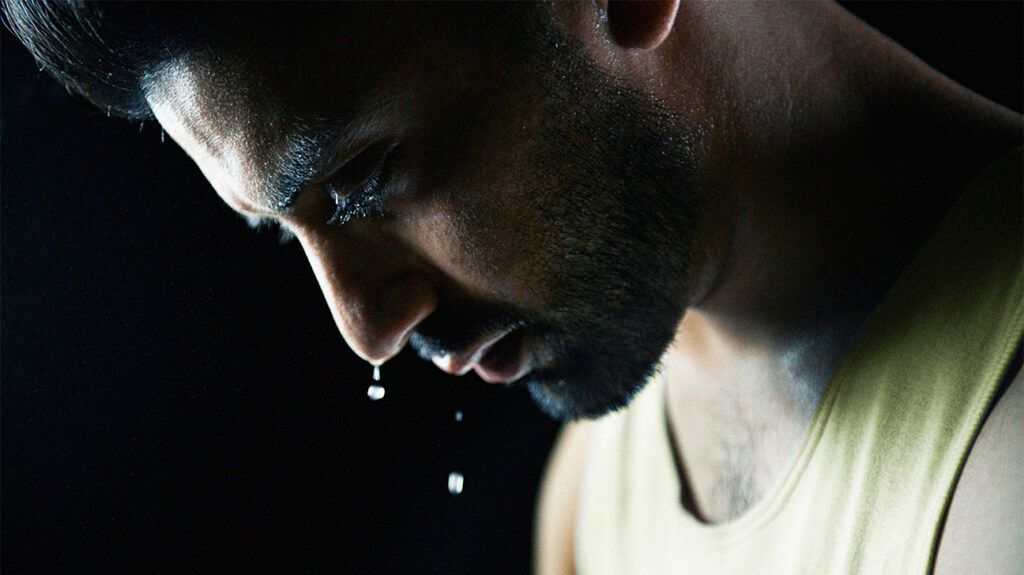Cold sweats are a sign of sudden, significant stress, which could be physical or psychological in origin. It may also be a combination of the two.
There are two different kinds of sweat glands: the eccrine, which are found all over the body and help control body temperature, and the apocrine, which are located primarily in the groin and underarm areas.
The sweat produced by the eccrine sweat glands is mostly water, which helps to cool the body down. While heat can sometimes trigger the apocrine sweat glands, these glands are usually activated by stress and hormonal changes, which is why they play a significant role in cold sweats.
Treatment for cold sweats may depend on the cause of them. It may involve home remedies or medications.
This article discusses the causes of cold sweats, other symptoms that may occur, and how to manage them.

Anxiety and stress are the
There are also various other situations and conditions that prompt cold sweats.
Anxiety disorders
Cold sweats
Individuals who experience cold sweats, along with increasing and, at times, overwhelming levels of anxiety, should consider contacting a mental health professional to explore treatment options.
Pain and shock
Cold sweats with pain, often due to accidents or other injuries, can be a sign of shock. Other signs include increased heart rate, blood diverted to major organs, and low blood pressure.
Prompt medical treatment is needed. Shock
Heart attack
Cold sweats
- chest discomfort
- pain or discomfort in one or both arms, jaw, neck, back, or stomach
- shortness of breath
A heart attack is a medical emergency. If anyone is experiencing these symptoms, they should seek immediate medical treatment.
Learn what to do if someone has a heart attack.
Hypoxia
Hypoxia is the
It can cause cold sweats and requires immediate treatment.
Hypoglycemia
Also known as low blood glucose, hypoglycemia occurs when an individual’s blood sugar
Hot flashes, night sweats, and menopause
Changes in hormone levels associated with menopause and perimenopause can prompt bursts of sweating. These
Infection
Sweating can be a sign of the body’s response to many different infections, including tuberculosis and HIV. This can sometimes occur as fever or night sweats.
Other signs and symptoms of infection
- neck stiffness
- shortness of breath
- sore throat
- nasal congestion
- chills
- cough
- diarrhea or vomiting
Other infections, such as the flu or COVID-19 can also cause sweating, fever, and chills.
The fight or flight response is the body’s
The physical responses sparked by the stress response include:
- faster heartbeat
- more rapid and shallow breathing
- reduced blood flow to the digestive system, leading to less saliva and a dry mouth
- the release of endorphins
- the opening of sweat glands
Cold sweats are different from regular sweats in that they do not develop as part of the body’s cooling response. This means that people experiencing a cold sweat may have skin that is clammy and cool. They may report feeling cold. Sometimes the skin may appear pale.
In order to manage cold sweats, an individual should try the following:
- managing stress
- managing pain
- controlling fear
- minimizing sexual stimulation
- treating underlying conditions, such as hypoglycemia
However, it is not always possible to prevent or manage cold sweats. They are generally a result of stimulation by stress, pain, or fear.
There are various reasons a person may experience cold sweats. These may include shock from an injury or accident, infection, anxiety disorders, or a heart attack.
Issues such as shock and a heart attack are considered medical emergencies and require immediate treatment.
If a person is experiencing cold sweats along with persistent anxiety, chest pains, or shortness of breath, they should speak with a healthcare professional.
